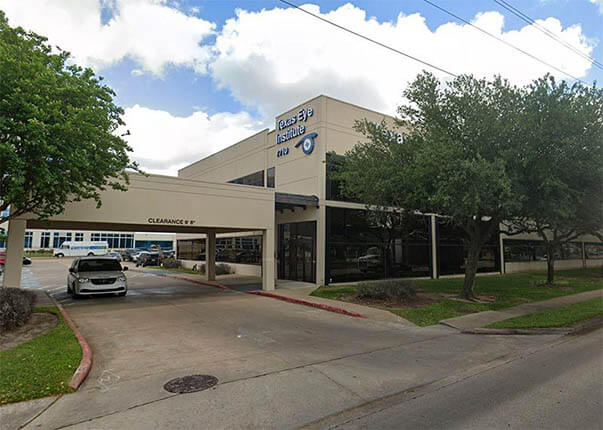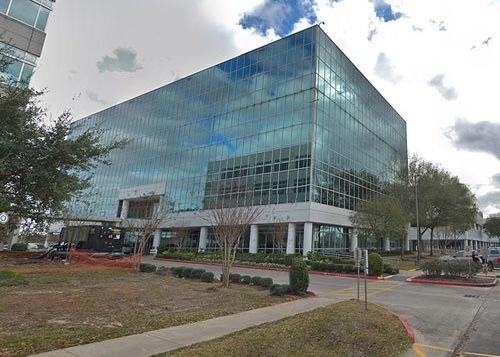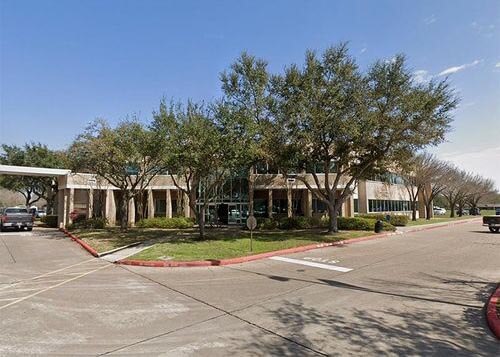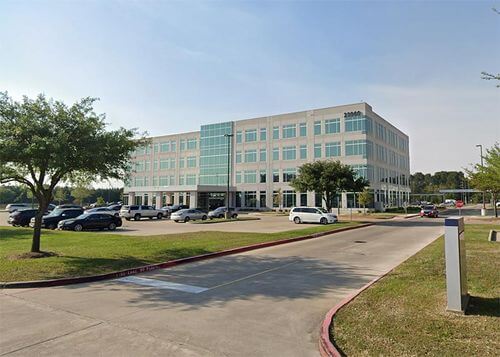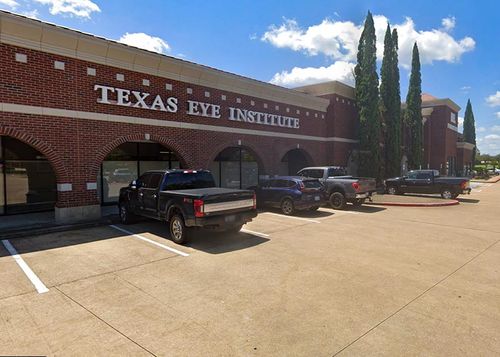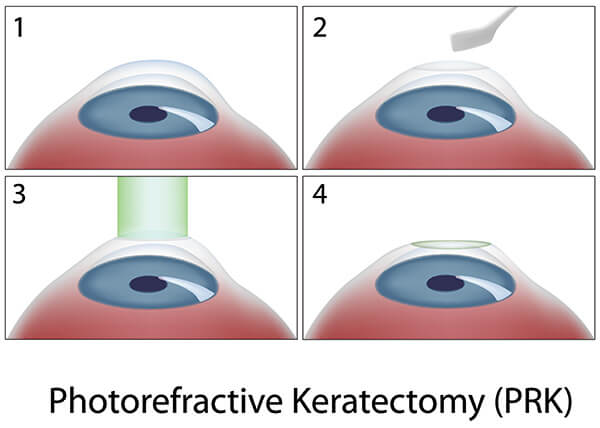
Photo-Refractive Keratectomy (PRK) brought about renewed excitement to both surgeons and patients. The procedure is performed on an outpatient basis using the excimer laser. In less than a minute, using ultraviolet light from the “cold” or non-thermal laser, the excimer laser reshapes the surface of the cornea to improve nearsightedness, farsightedness, and astigmatism much like LASIK eye surgery. The amount of tissue reshaped depends on the severity of the prescription. In most cases, 5 to 10 percent of the cornea is removed. Once the cornea has flattened, light rays are more easily focused upon the retina. PRK differs from LASIK in that no flap of tissue is created prior to resculpting the cornea with the excimer laser. In LASIK this flap creation does enable a faster recovery period. Results from the relatively young PRK procedure are similar to those of the more mature RK procedure with the vast majority of patients achieving post-operative results of 20/40 (driving vision) or better. Are you seeking a Houston PRK surgeon or expert in performing this type of vision? Please read below to learn more.
The procedure can be performed once the eye has been numbed with anesthetic drops. A speculum will be positioned to hold your eyelids back just like in LASIK so that you eyelids will not interrupt the actual surgery. The ophthalmologist will then remove the outer cornea cells and proceed with the actual laser treatment. The laser is then positioned to directly treat the cornea. This laser delivery takes less than one minute to complete for most patients. Once the laser treatment or refractive ablation is completed, the corneal curvature is reshaped, thus improving the refractive error. Your ophthalmologist will then place a bandage contact lens on the eye for improved comfort along with anti-inflammatory and antibiotic eye drops.
PRK is a safe, effective alternative to LASIK for many potential refractive surgery patients. PRK results are very similar to LASIK results. In general, PRK patients will have a somewhat slower recovery period. Please feel free to consult one of our staff to better understand the advantages of PRK and whether or not this would be a good option for your vision.
Post-operatively, most patients will need to be re-evaluated one day, three days, one week, one month, two to three months, and four to six months following the PRK procedure. The bandage contact lens can usually be removed on the second or third post-operative day when the epithelium is healed. Most patients will only require eye drops to control healing during the first 6 to 12 weeks, but other patients may require topically applied medications for up to 6 months or more following the procedure. In general, the greater the refractive error, the more likely the patient is to require eye drop medications for a prolonged period following the procedure.
Texas Eye Institute is proud to provide five convenient locations for your eye care needs. Visit one of our convenient locations in Angleton, Sugarland, Southwest Houston, Katy, or Southeast Houston to see why the Texas Eye Institute is the best choice to care for your vision. Need LASIK in Houston? What about a comprehensive eye exam in Sugarland? See our locations page to find our practice nearest you!
